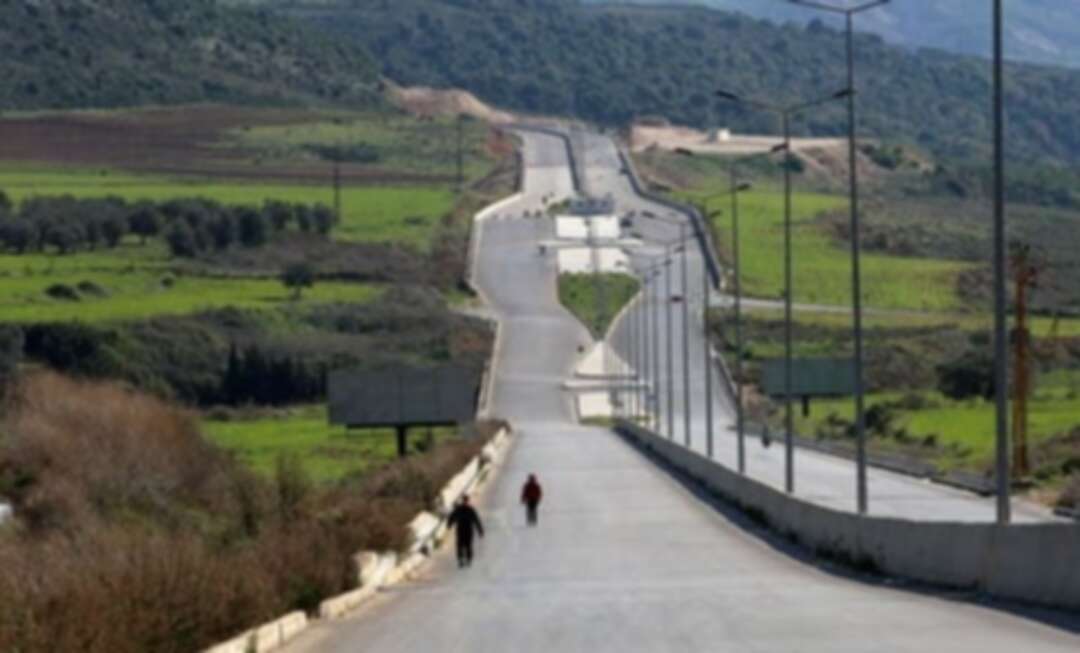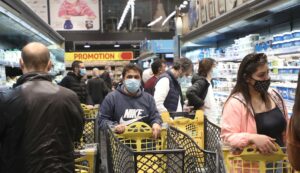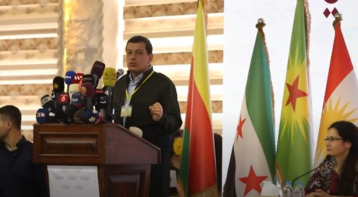-
Coronavirus: Lebanon kicks off 24-hour curfew as COVID-19 cases surge

Lebanese hunkered down indoors Thursday on the first day of a strict 11-day lockdown imposed in a bid to slow down a sharp uptick in novel coronavirus cases.
The heightened restrictions, which include a 24-hour curfew until January 25, come after some hospitals started to run out of beds to treat Covid patients.
In the capital, a trickle of trucks and cars ventured out onto the roads on Thursday, after state media reported caretaker health minister Hamad Hasan was admitted to hospital for treatment for Covid-19 the previous evening.
Under the new measures, non-essential workers are barred from leaving their homes, and supermarkets will operate delivery services only.
The restriction has raised fears of food shortages in impoverished and remote regions where deliveries are not readily available.
 People shop at a supermarket ahead of a tightened lockdown and a 24-hour curfew to curb the spread the coronavirus disease (COVID-19) outbreak in Beirut. (Reuters)
People shop at a supermarket ahead of a tightened lockdown and a 24-hour curfew to curb the spread the coronavirus disease (COVID-19) outbreak in Beirut. (Reuters)For several days, Lebanese have flooded supermarkets and chemists in a desperate bid to stock up.
Some are worried the new restrictions will pile additional suffering on the country’s poorest.
Charity Save the Children said it accepted the need for a strict response to the coronavirus uptick, but said it was “very concerned that vulnerable families and their children will be left to deal with a catastrophe on their own”.
Lebanon, a country of more than six million, was already grappling with its worst economic downturn in decades when the pandemic hit.
Previous lockdowns have forced businesses to close and deprived daily wage earners of an income in a country where more than half the population lives in poverty.
The World Bank Group on Tuesday approved a $246 million aid package to help 786,000 vulnerable Lebanese, but it is unclear when that assistance will arrive.
Recent days have seen Lebanon register record daily Covid-19 caseloads in one of the steepest increases in transmission worldwide.In total, it has announced 231,936 cases since February last year, including 1,740 deaths.
Cases skyrocketed after authorities loosened restrictions during the holiday season, allowing restaurants and night clubs to remain open until 3:00 am, despite warnings from health professionals.
A partial lockdown in place since January 7 has failed to halt the spread of the virus.
Parliament is expected to convene Friday to examine a bill to allow the import and use of Covid-19 vaccines, which authorities have previously said will arrive in Lebanon by February.
A caretaker administration is overseeing the country’s Covid-19 response.
The government resigned after a devastating port explosion last summer, but a deeply divided political class has been unable to agree on a new cabinet to launch urgently required reforms.
source: AFP
Image source: Reuters
Levant
You May Also Like
Popular Posts
Caricature
BENEFIT Sponsors BuildHer...
- April 23, 2025
BENEFIT, the Kingdom’s innovator and leading company in Fintech and electronic financial transactions service, has sponsored the BuildHer CityHack 2025 Hackathon, a two-day event spearheaded by the College of Engineering and Technology at the Royal University for Women (RUW).
Aimed at secondary school students, the event brought together a distinguished group of academic professionals and technology experts to mentor and inspire young participants.
More than 100 high school students from across the Kingdom of Bahrain took part in the hackathon, which featured an intensive programme of training workshops and hands-on sessions. These activities were tailored to enhance participants’ critical thinking, collaborative problem-solving, and team-building capabilities, while also encouraging the development of practical and sustainable solutions to contemporary challenges using modern technological tools.
BENEFIT’s Chief Executive Mr. Abdulwahed AlJanahi, commented: “Our support for this educational hackathon reflects our long-term strategic vision to nurture the talents of emerging national youth and empower the next generation of accomplished female leaders in technology. By fostering creativity and innovation, we aim to contribute meaningfully to Bahrain’s comprehensive development goals and align with the aspirations outlined in the Kingdom’s Vision 2030—an ambition in which BENEFIT plays a central role.”
Professor Riyadh Yousif Hamzah, President of the Royal University for Women, commented: “This initiative reflects our commitment to advancing women in STEM fields. We're cultivating a generation of creative, solution-driven female leaders who will drive national development. Our partnership with BENEFIT exemplifies the powerful synergy between academia and private sector in supporting educational innovation.”
Hanan Abdulla Hasan, Senior Manager, PR & Communication at BENEFIT, said: “We are honoured to collaborate with RUW in supporting this remarkable technology-focused event. It highlights our commitment to social responsibility, and our ongoing efforts to enhance the digital and innovation capabilities of young Bahraini women and foster their ability to harness technological tools in the service of a smarter, more sustainable future.”
For his part, Dr. Humam ElAgha, Acting Dean of the College of Engineering and Technology at the University, said: “BuildHer CityHack 2025 embodies our hands-on approach to education. By tackling real-world problems through creative thinking and sustainable solutions, we're preparing women to thrive in the knowledge economy – a cornerstone of the University's vision.”
opinion
Report
ads
Newsletter
Subscribe to our mailing list to get the new updates!






















